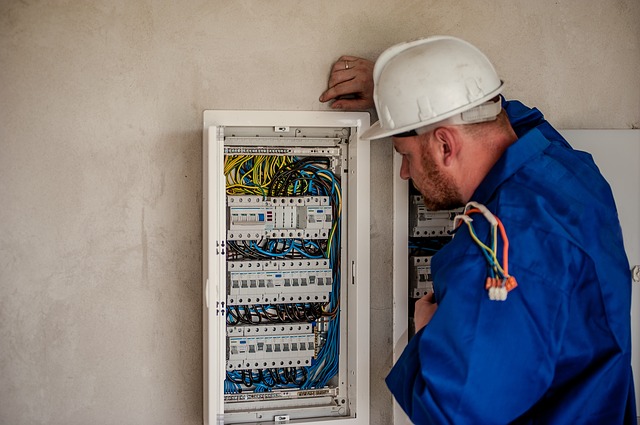Electricians are skilled employees whose occupation is to fix, fix, and maintain electrical equipment that helps in business operations. An electrician is essentially a tradesman specializing in electricity of various kinds, electric wiring of commercial buildings, electrical transmission lines, lighting, and many other related electric equipment. Electricians may also be used in the installation of new electric components on-site or the upkeep and repairs of existing electric infrastructure used in businesses. Electricians need to be highly qualified professionals with a thorough understanding of wiring systems, electricity, security measures, and the correct application of electricians in residential and commercial buildings are called the top electricians’.
It’s not easy to locate decent quality electricians. There are a lot of electricians who are less skilled and capable than that which a normal electrician could be. So thorough research has to be performed before you hire somebody. You have to look at their work experience, certifications, educational history and other essential information. Professional associations of electricians can allow you to pick the most suitable professional for your requirements.
Electricians
In the United States, many distinct professional associations provide job training and recruiting to electricians. Among these associations is the Federation of Electric Contractors, Southern Association of Electricians, Independent Electrical Contractors, The North American Insulation Manufacturers Association, Inc. (NAICA), along with Northwest Association of Electric Contractors. All these organizations have been instrumental in developing and improving their respective sectors. Aside from these, there are additional job training and recruitment organizations that work towards promoting electricians. They comprise.
Electricians
Electrical contractors or tradesmen are generally those operating under contract with electricians. Some electricians operate on their own for established businesses. However, most electricians operate as independent contractors working for customers. A few of these include installers, repairmen, and panel manufacturers. Basically, the job of electricians includes: installing, repairing, and installing new industrial and residential electrical systems.
Electricians
Normally, electricians might not have a 40-hour week. But, electricians tend to be working hectic schedules, particularly during holidays and public holidays. Most industrial electricians operate full time; nonetheless, maintenance electricians can work part-time in addition to freelance. The typical workweek for maintenance electricians is from eight to fourteen hours.
Electricians
As the requirement for skilled electricians increases, the purchase price of these skilled and highly educated workers also increases. The national average hourly wage for these employees is roughly $19 an hour. This is the highest rate in the developed world. However, as mentioned above, the national average hourly wage isn’t very likely to keep pace with the increasing cost of living in the USA. There’s a great job outlook, nevertheless.
To be able to get proficient at doing the task, electricians will need to obtain some on-the-job expertise. There are several methods to acquire this experience, including apprentice applications, working under an experienced electrician, spending some time in an internship, or even becoming licensed and accredited by the electricians’ board. Although the majority of electricians will be either completely unlicensed or do not own a license, there are still some electricians that are employed by a state-approved electricians’ institution that lets them participate in the on-the-job experience and get training.
The two most popular approaches to get some on-the-job expertise and become more qualified are via an apprenticeship program or by enrolling in a GED program. An apprenticeship program helps applicants get necessary skills such as specialized abilities, good communication skills, manual dexterity, safety, basic math skills, and invaluable work experience. The certification process is relatively simple: graduates can go straight to a job interview, pass the exam, and get hired. For applicants that wish to continue their education but don’t have enough time to take extra courses or have a refresher course, going through an apprenticeship program will allow them to do so. Many employers prefer to hire experienced apprentices over newly licensed, accredited, and licensed professionals since apprentices are demonstrated to be more versatile and work well independently.
